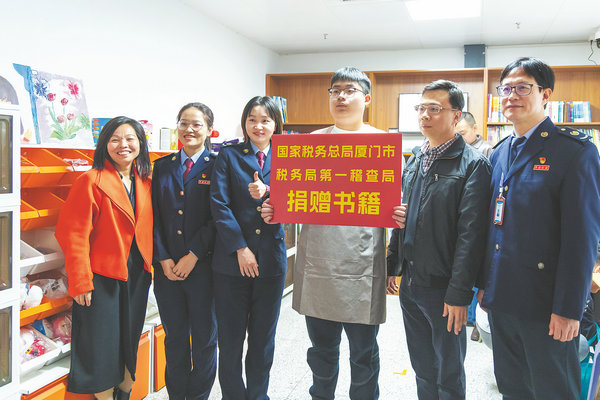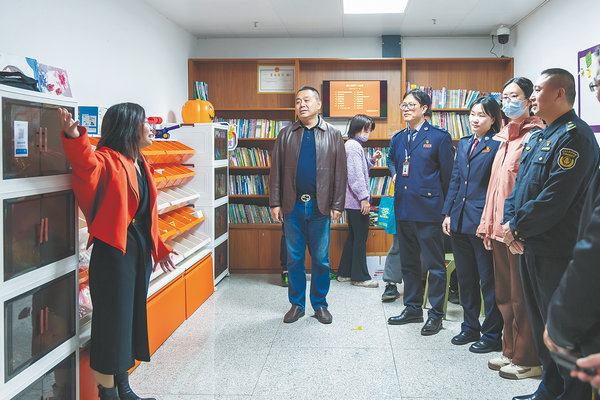Lucky Star shines in Xiamen
Shops designed to provide employment and teach young people with autism transferable skills, Cheng Yuezhu reports.


In three metro stations in Xiamen, Fujian province, you'll find tiny shops. Their doors have never closed, and they welcome any passerby to browse for books, toys, and other items.
They are the Xingyunxing (Lucky Star) Charity Goods Transfer Stations, and the three shops are mostly self-service. To make a purchase, customers simply look up the price and scan the code, particularly at night, when the shops are untended.
While most of the products are secondhand, they are carefully taken care of and arranged. Run by the Xiamen Xingbaobei Children's Intelligence Development Center, the shops provide job opportunities to adults with autism spectrum disorders.
In the morning, an employee cleans the shops, disinfecting the products, and tidying up the shelves. In the afternoon, coaches from the center teach other students with autism how to manage the shops.
The first outpost opened last April and now manages to break even. This March, two new shops opened. Between them, they now have five full-time employees, and provide training opportunities to around 50 students.

Despite being seemingly low-maintenance and simple, the project has taken several years and countless trials and errors to reach this point, explains Luo Liying, founder of the center and of the shops.
"I've been working with autistic children for 24 years, and it's been 11 years since I set up the center. Some of the children have been with us since they were only 6 or 7 years old," she says.
"Now they have grown up, and it's unclear where they'll go next. So I was really anxious to help them find employment."
She has adopted the methods espoused by Zhen Yuelai, a specialist in autism intervention and education, which holds that a main goal of autism intervention is to improve social functioning.
From an early age, children have been coming to Luo's center after school. There, they are taught how to integrate into different social environments — family, school and community. The final environment is the workplace, which is now supplemented by experience in the shops.
"We have compulsory education, but not compulsory employment. If young adults with autism don't start working and step back from society, they can easily backslide, which would be a great pity, as everything they have worked so hard for might then go to waste."




































